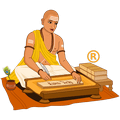























Sunrise05:56 AM
Sunset05:50 PM
MoonriseNo Moonrise
Moonset05:31 PM
Shaka Samvat-9546 Angira
Vikram Samvat-9411 Prajapati
Gujarati Samvat-9412 Subhanu
Amanta MonthShravana
Purnimanta MonthBhadrapada
WeekdayGuruwara
PakshaKrishna Paksha
TithiAmavasya upto 03:21 AM, Mar 14
NakshatraAshlesha upto 04:16 PM
YogaVariyana upto 06:26 AM
YogaParigha upto 03:51 AM, Mar 14
KaranaChatushpada upto 04:32 PM
KaranaNagava upto 03:21 AM, Mar 14
Pravishte/Gate7
Rahu Kalam01:22 PM to 02:51 PM
Gulikai Kalam08:54 AM to 10:24 AM
Yamaganda05:56 AM to 07:25 AM
Abhijit11:29 AM to 12:17 PM
Dur Muhurtam09:54 AM to 10:41 AM
Dur Muhurtam02:39 PM to 03:27 PM
Amrit Kalam02:45 PM to 04:16 PM
Varjyam03:50 AM, Mar 14 to 05:22 AM, Mar 14
Notes: All timings are represented in 12-hour notation in local time of Lancaster, United States with DST adjustment (if applicable).
Hours which are past midnight are suffixed with next day date. In Panchang day starts and ends with sunrise.


 Kumbha 07:36
Kumbha 07:36 P Bhadrapada 13:29
P Bhadrapada 13:29

 Meena
Meena U Bhadrapada 12:46
U Bhadrapada 12:46

 Dhanu 07:45
Dhanu 07:45 U Ashadha 27:08+
U Ashadha 27:08+

 Makara
Makara Shravana 28:35+
Shravana 28:35+

 Kumbha
Kumbha Shatabhisha 30:10+
Shatabhisha 30:10+

 Meena 29:37+
Meena 29:37+ U Bhadrapada 06:10
U Bhadrapada 06:10

 Mesha 09:13
Mesha 09:13 Krittika 26:07+
Krittika 26:07+

 Vrishabha
Vrishabha Rohini 24:29+
Rohini 24:29+

 Vrishabha 11:36
Vrishabha 11:36 Mrigashira 22:42
Mrigashira 22:42

 Karka
Karka Pushya 17:33
Pushya 17:33

 Karka 16:16
Karka 16:16 Ashlesha 16:16
Ashlesha 16:16

 Tula
Tula Swati 19:53
Swati 19:53

 Tula 15:48
Tula 15:48 Vishakha 22:28
Vishakha 22:28

 Vrishchika
Vrishchika Anuradha 25:20+
Anuradha 25:20+

 Vrishchika 28:15+
Vrishchika 28:15+ Jyeshtha 28:15+
Jyeshtha 28:15+

 Dhanu
Dhanu Mula
Mula

 Dhanu
Dhanu Mula 07:01
Mula 07:01

 Makara 25:13+
Makara 25:13+ Shravana 12:45
Shravana 12:45In Hindu Calendar, the day starts with local sunrise and ends with next day local sunrise. As sunrise time is different for all cities, Hindu Calendar made for one city is not valid for any other city. Hence it is important to use location based Hindu Calendar, like this website. Further, each Hindu day consists of five elements, which are called angas. These five elements are -
In Hindu Calendar, all five elements together are called Panchang. (In Sanskrit: Panchang = Pancha (five) + Ang (part)). Hence Hindu Calendar which shows all five elements for each day is called Panchang. In South India Panchang is known as Panchangam.
When Hindu Calendar includes Muslims, Sikh, Christian, Buddhist and Jain festivals, including national holidays, it is called as Indian Calendar.